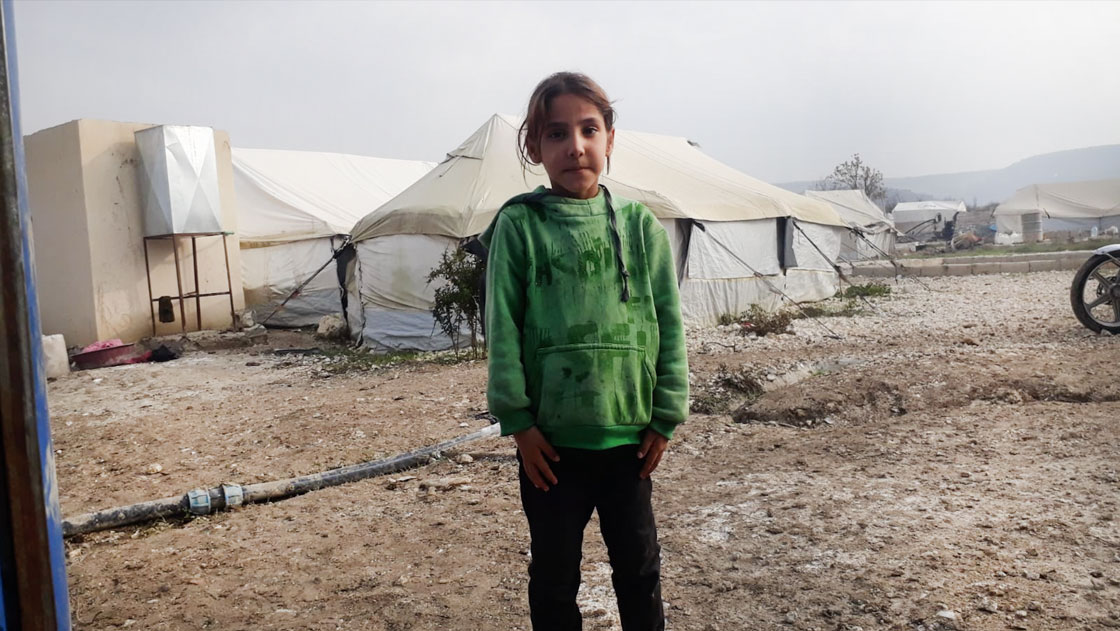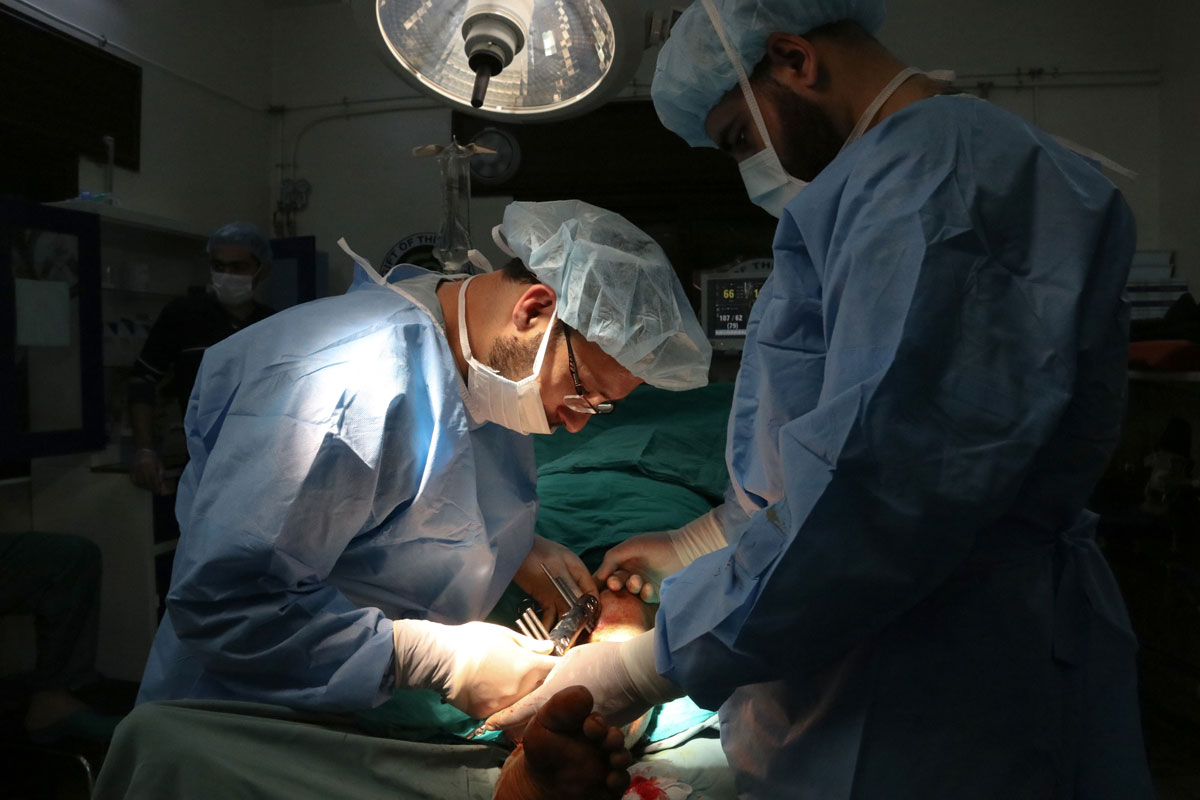For nearly eight years, conflict has raged across the whole of Syria, forcing millions of families to flee at a moment’s notice – either across borders as refugees or to more remote areas inside Syria far from their homes. Relief International has focused significant attention on supporting the growing needs of internally displaced families in Syria’s Idlib province. Home to nearly three million people, mostly civilians, one-third of the city’s population has been forced to move to Idlib from elsewhere in Syria.
Despite the unimaginable challenges that face them, our teams continue to respond to the humanitarian situation unfolding inside Idlib to ensure civilians receive the life-saving healthcare they need to survive.
Our healthcare teams often meet their patients to the tune of screeching sirens as ambulances deliver them to a hospital supported by Relief International in northern Syria.
Abdullah* is one of the most recent patients to arrive this way. After his father was killed in an airstrike, Abdullah and his remaining family members fled north from their home in Hama to Idlib province, reuniting and moving in with his uncle’s family. One day while Abdullah wandered around the narrow streets of his new city, his shoe clipped a heavy metal object hidden under the sand, triggering an explosion.
Traumatized and in a state of shock, he was rushed by members of the Syria Civil Defense in an ambulance to a nearby RI-supported hospital for treatment – likely in the same ambulance that carried Abdullah’s father one year earlier. When he arrived, Abdullah was immediately taken in for surgery. In an attempt to stem his heavy bleeding, our skilled team of doctors and nurses partially amputated his left foot – a difficult decision that ultimately saved his life.
Conflict and turmoil in the region have amplified the war’s devastation, as families from neighboring countries, namely Iraq, have also poured over the border into Syria – and into harm’s way.
Miriam*, a five-year-old refugee, and her family fled to Idlib to escape decades of conflict in their home country of Iraq. However, their move yielded no respite from the violence. One morning while Miriam picked up breakfast of hummus, fava beans and pita with za’atar for her family, she heard the sound of heavy fighting break out near the bakery. Miriam was struck in the back by a stray bullet, which fractured her spine, temporarily paralyzing her from the waist down. She was immediately transported to the closest hospital, which is supported by Relief International, where she was rushed into emergency surgery for her injuries.

Weekly physical therapy sessions from RI have helped Miriam, a five year old refugee from Iraq, regain the use of both of her legs.
© RI
Today, Abdullah and Miriam are recovering from their surgeries and both continue to visit our healthcare centers regularly for additional follow-up care. Abdullah’s visits provide him with medication and help to ensure that his wound does not become infected. Miriam receives weekly physical therapy sessions, which have helped her to regain the use of both of her legs. In addition, she also receives counseling from professional psychologists to overcome this traumatic experience – all of which is provided free of charge to Miriam, Abdullah and 67,000 patients like them that Relief International supports every month. The war has completely shut down the country’s healthcare system, forcing the nearly 7 million people displaced inside Syria, to rely entirely on organizations like ours for all their healthcare needs.
For a moment last year, it appeared that as the year ended, the Syrian conflict would follow suit. Despite recent steps taken by the international community towards achieving peace, millions of lives in Idlib continue to hang in a precarious balance, and will until a real, sustainable solution is reached. Relief International continues to monitor the situation closely, while our teams on the ground are working tirelessly to ensure that high-quality healthcare services remain available to all who need it in these vulnerable communities.
*Name changed to protect identity.
